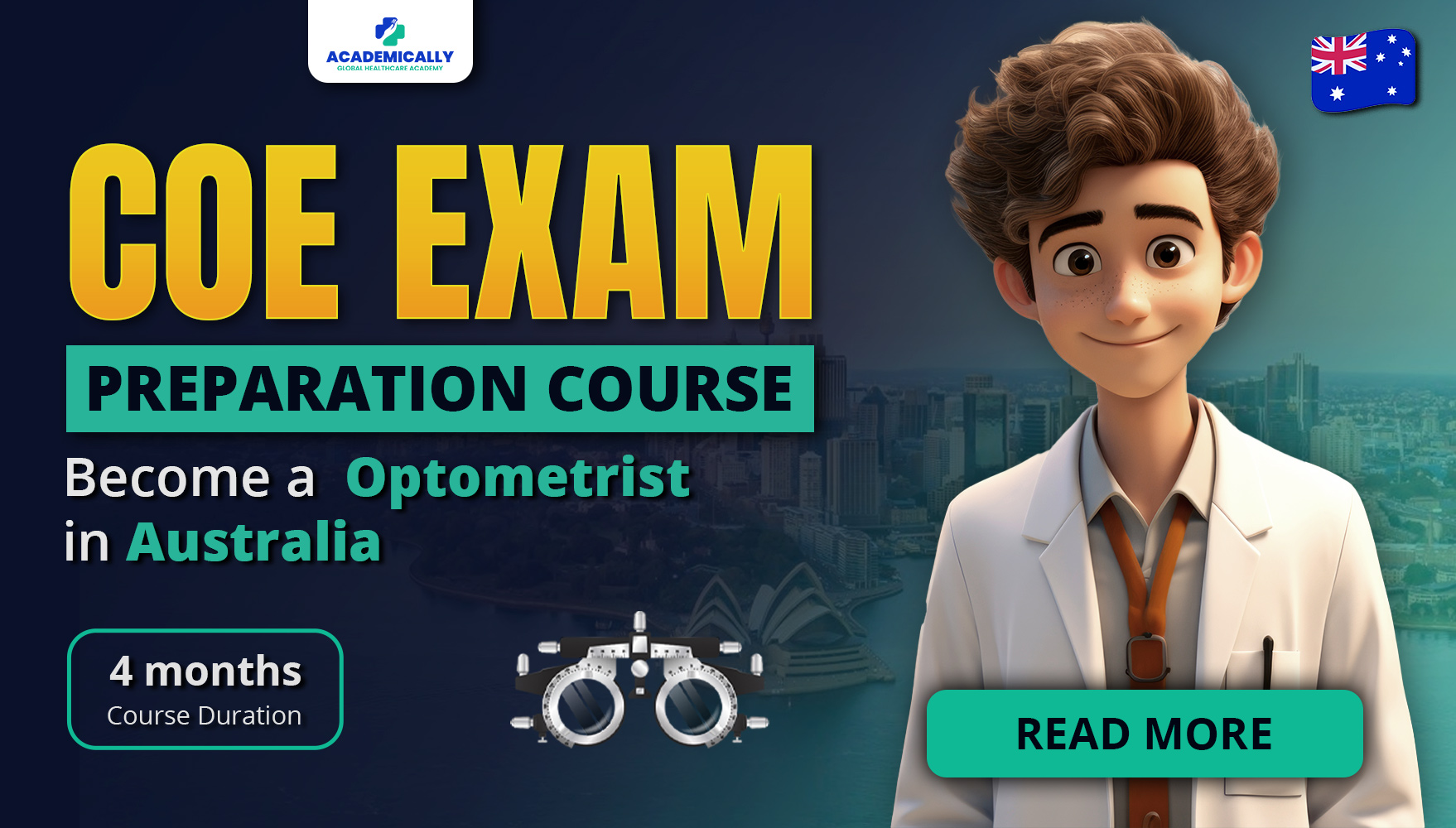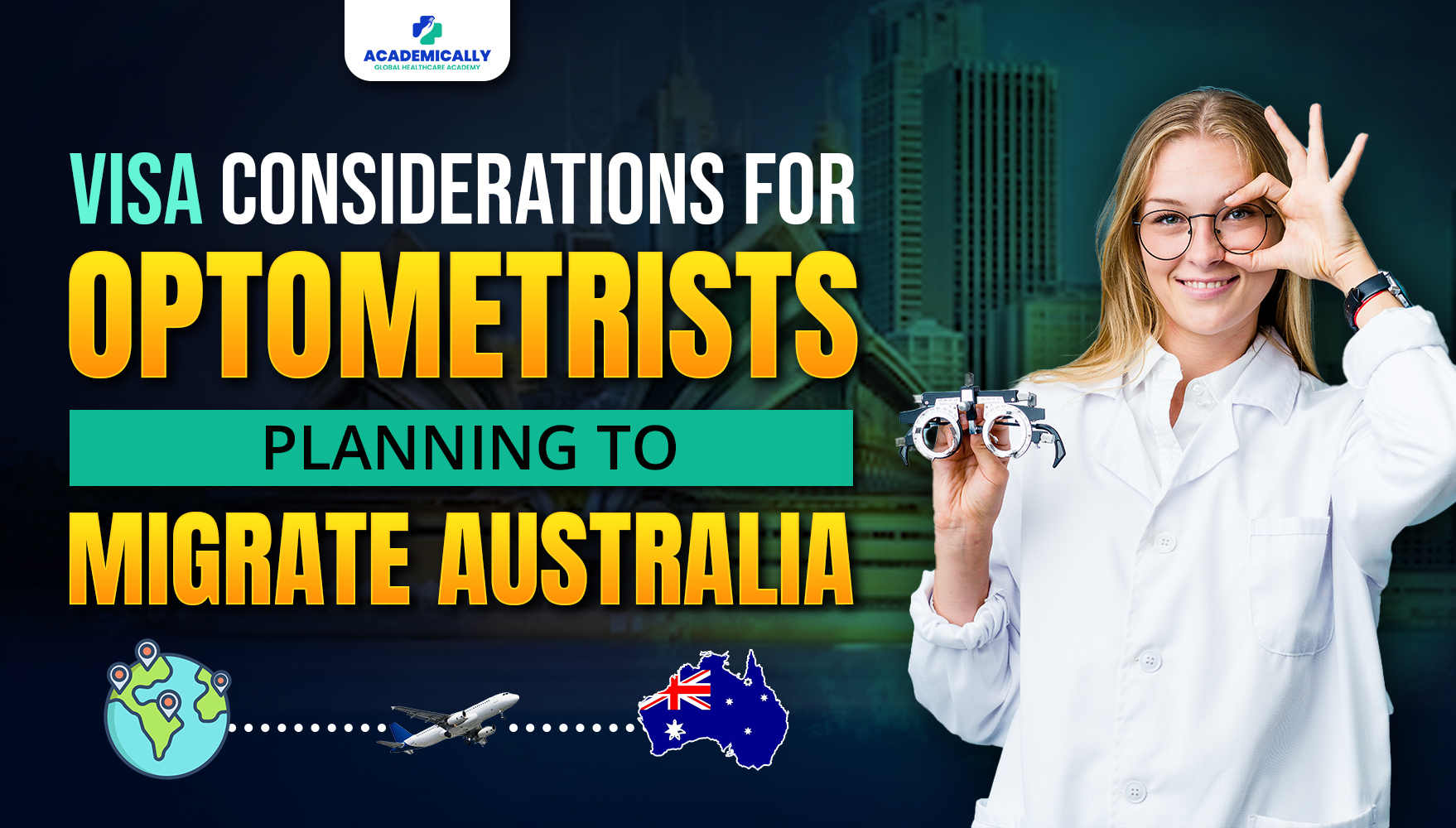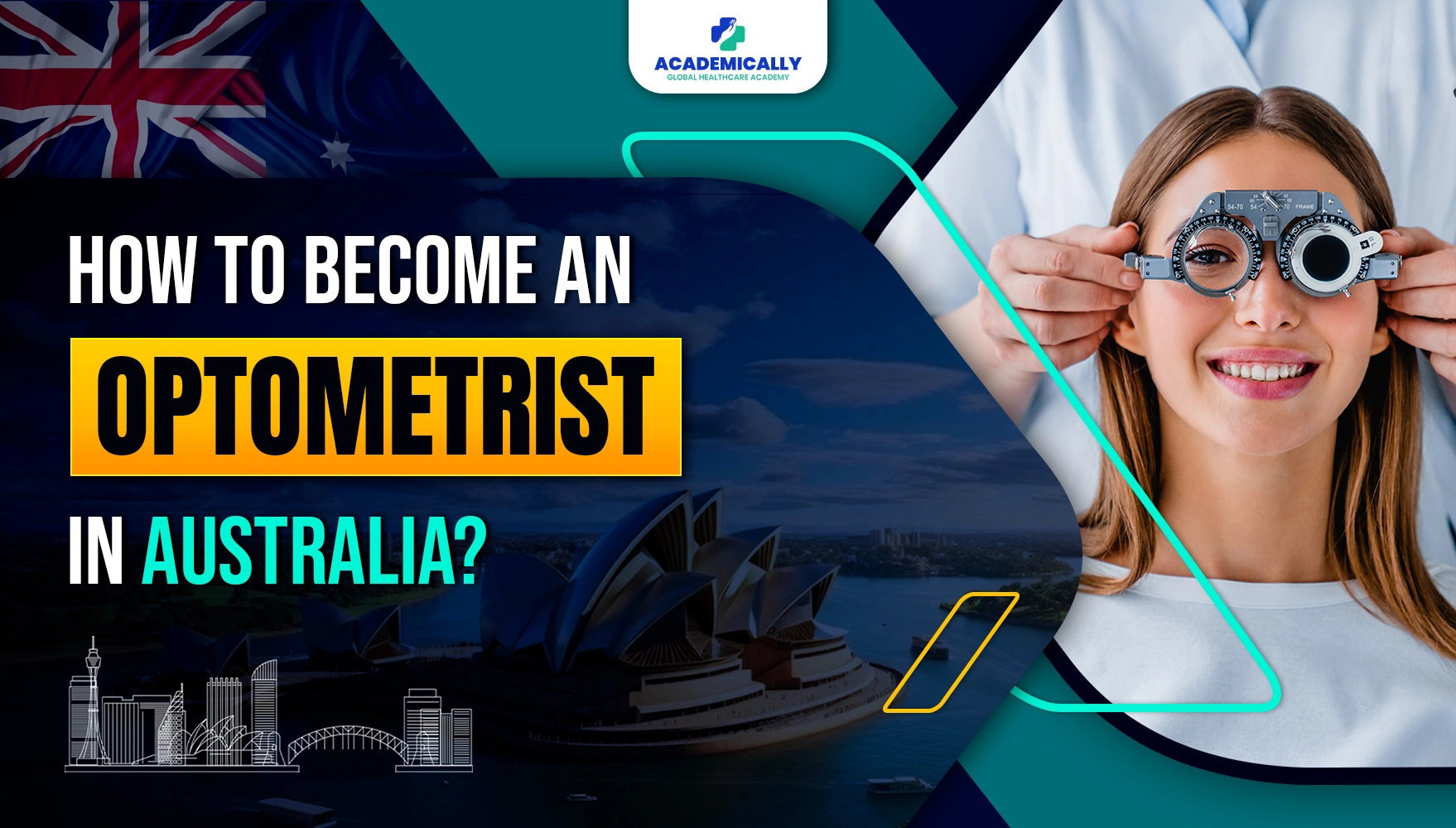Understanding the Optometrist Occupation
Before delving into the visa requirements, let's first explore the role of an optometrist. Optometrists play a vital role in healthcare by performing eye examinations, vision tests, and diagnosing eye diseases and abnormalities. They prescribe lenses, optical aids, therapy, and medications to correct and manage vision problems. Optometrists also provide advice on visual health matters and conduct preventative screening programs.

Skills Assessment for Optometrists
To apply for most skilled visas, including the subclass 189, 190, and 485, optometrists must undergo a positive skills assessment. The designated authority responsible for assessing optometrists is the Optometry Council of Australia and New Zealand Limited (OCANZ). The skills assessment process involves two main requirements:
- Eligibility: Optometrists must demonstrate their eligibility to sit the Competence in Optometry Examination (COE). This requires successful completion of a course equivalent to four years of full-time study or three years of full-time study followed by one year of supervised clinical practice. The qualification should also include a professional examination and meet specific educational prerequisites, course length, and standards.
- Competence in Optometry Examination (COE): Optometrists must pass all components of the COE, which consists of a written examination and a clinical examination. The written examination assesses knowledge in biomedical, vision and optical science, and clinical science. The clinical examination evaluates clinical skills through skills station and patient examinations.
It is important to note that OCANZ does not require applicants to provide evidence of English language competency. However, a comprehensive knowledge of English is essential for practicing optometry in Australia and New Zealand, as well as for successfully completing the COE.
Potential Visa Pathways for Optometrists
As an optometrist, you have several potential visa pathways to consider, depending on your specific circumstances and career goals. Let's explore some of these visa options available for optometrists and their requirements in detail.
Skilled Independent Visa (Subclass 189)
The Skilled Independent Visa (Subclass 189) is a points-tested visa that allows you to live, work, and study in Australia permanently. To be eligible for this visa as an optometrist, you must meet the following criteria:
Immigration Points: You must score at least 65 points on the points test. Points are awarded based on factors such as age, educational qualifications, professional experience, English language proficiency, and other relevant criteria.
English Language Proficiency: You must have at least competent English, which is typically demonstrated through an International English Language Testing System (IELTS) score of 6.0 or equivalent.
Age: You must be under 45 years of age at the time of application.
Invitation: You must lodge an Expression of Interest (EOI) and receive an invitation from the Department of Home Affairs to apply for the visa.
Skills Assessment: You must have a positive skills assessment from OCANZ.
Health and Character Requirements: You must meet the health and character requirements set by the Australian government.
Skilled Nominated Visa (Subclass 190) and Skilled Work Regional (Provisional) Visa (Subclass 491)
The Skilled Nominated Visa (Subclass 190) and Skilled Work Regional (Provisional) Visa (Subclass 491) require nomination from a state or territory government in Australia. These visas provide an additional pathway to permanent residency. To be eligible for these visas, you must meet the following criteria:
Immigration Points: You must score at least 65 points on the points test, or higher points if required by the state or territory government.
English Language Proficiency: You must have at least competent English, usually demonstrated through an IELTS score of 6.0 or equivalent.
Age: You must be under 45 years of age at the time of application.
Nomination: You must lodge an EOI and be invited by the state or territory government to apply for the visa.
Skills Assessment: You must have a positive skills assessment from OCANZ.
Health and Character Requirements: You must meet the health and character requirements set by the Australian government.
Location: For the Subclass 491 visa, you must live and work in a designated regional area in Australia.
It is important to review the specific requirements of each state or territory government for nomination under the Subclass 190 and Subclass 491 visas. These requirements may include occupation-specific criteria and regional preferences.
Temporary Graduate Visa (Subclass 485)
The Temporary Graduate Visa (Subclass 485) is a work visa available to international students who have completed at least two years of study in Australia. This visa allows you to stay in Australia for up to 18 months with full work rights. To be eligible for the Subclass 485 visa as an optometrist, you must meet the following criteria:
Visa History: You must hold or have held a student visa within the last six months.
English Language Proficiency: You must have at least functional English, typically demonstrated through an IELTS score of 4.5 or equivalent.
Age: There is no age requirement for the Subclass 485 visa.
Education: You must have completed a two-year CRICOS registered course in optometry or a related field.
Skills Assessment: You must have a positive skills assessment from OCANZ.
Occupation: Your occupation as an optometrist must be on the Medium and Long-Term Strategic Skills List (MLTSSL).
Employer Nomination Scheme (Subclass 186)
If you have an Australian employer willing to sponsor you, you may be eligible for the Employer Nomination Scheme (Subclass 186) visa. This visa allows you to live, work, and study in Australia permanently. To be eligible for the Subclass 186 visa as an optometrist, you must meet the following criteria:
Experience: You must have at least three years of full-time work experience in the nominated occupation.
English Language Proficiency: You must have at least competent English, typically demonstrated through an IELTS score of 6.0 or equivalent.
Age: You must be under 45 years of age, unless exempt.
Sponsorship: You must be sponsored by an Australian employer.
Skills Assessment: You must have a positive skills assessment. Exemptions may apply for the Temporary Residence Transition stream if you hold a Subclass 457 or Subclass TSS visa.
Health and Character Requirements: You must meet the health and character requirements set by the Australian government.
Training Visa (Subclass 407)
The Training Visa (Subclass 407) is a short-stay visa designed for individuals to participate in occupational training or professional development in Australia. This visa allows you to stay in Australia for up to two years and engage in specified training activities. To be eligible for the Subclass 407 visa as an optometrist, you must meet the following criteria:
Genuine Temporary Entrant: You must demonstrate that you genuinely intend to stay in Australia temporarily for training purposes and will depart upon completion of the training.
English Language Proficiency: You must have at least functional English, typically demonstrated through an IELTS score of 4.5 or equivalent.
Age: You must be over 18 years old.
Sponsorship: You must be sponsored by an approved temporary activities sponsor, which can be an employer or a Commonwealth agency.
Health Insurance: You must hold valid private health insurance.
Health and Character Requirements: You must meet the health and character requirements set by the Australian government.
Skilled Sponsored Regional (Provisional) Visa (Subclass 494)
The Skilled Sponsored Regional (Provisional) Visa (Subclass 494) is designed for skilled workers who are sponsored by an Australian regional employer. This visa provides a pathway to permanent residency through the Subclass 191 visa. To be eligible for the Subclass 494 visa as an optometrist, you must meet the following criteria:
Experience: You must have at least three years of full-time work experience in the nominated occupation.
English Language Proficiency: You must have at least competent English, typically demonstrated through an IELTS score of 6.0 or equivalent.
Age: You must be under 45 years of age, unless exempt.
Sponsorship: You must be sponsored by an Australian regional employer.
Skills Assessment: You must have a positive skills assessment.
Location: You must live and work in a designated regional area in Australia.
It is essential to review the specific requirements and occupation lists for regional areas when applying for the Subclass 494 visa.
Temporary Skill Shortage (TSS) Visa (Subclass 482)
The Temporary Skill Shortage (TSS) Visa (Subclass 482) is a temporary work visa that requires sponsorship from an Australian employer. This visa allows you to live and work in Australia for up to four years. To be eligible for the Subclass 482 visa as an optometrist, you must meet the following criteria:
Experience: You must have at least two years of work experience in the nominated occupation.
English Language Proficiency: You must have at least an IELTS score of 5.0 overall with no band less than 5.0.
Age: There is no age requirement for the Subclass 482 visa.
Sponsorship: You must be sponsored by an Australian employer.
Skills Assessment: A skills assessment is generally not required for the Subclass 482 visa unless specified for your occupation.
Health and Character Requirements: You must meet the health and character requirements set by the Australian government.
As an optometrist seeking to migrate to Australia, understanding the visa considerations and steps involved is crucial. This comprehensive guide has provided you with a detailed overview of the various visa options available, the skills assessment requirements, and the potential pathways to permanent residency. By following the necessary procedures and meeting the eligibility criteria, you can embark on an exciting journey to pursue your career in optometry in Australia. Remember to seek professional advice from registered migration agents to ensure a smooth and successful migration process.
It is advisable and beneficial to enroll yourselves with an education organisation that gives preparation for OCANZ COE exam preparations. This not only saves you time and money but also relieves of anxiety of passing the exam in first attempt.
Get in touch to know more about the guidelines, syllabus, passing cut scores of Competency in Optometry Examination from our stalwarts who have passed the examination!
Fill up this form for a free one on one counselling session.





